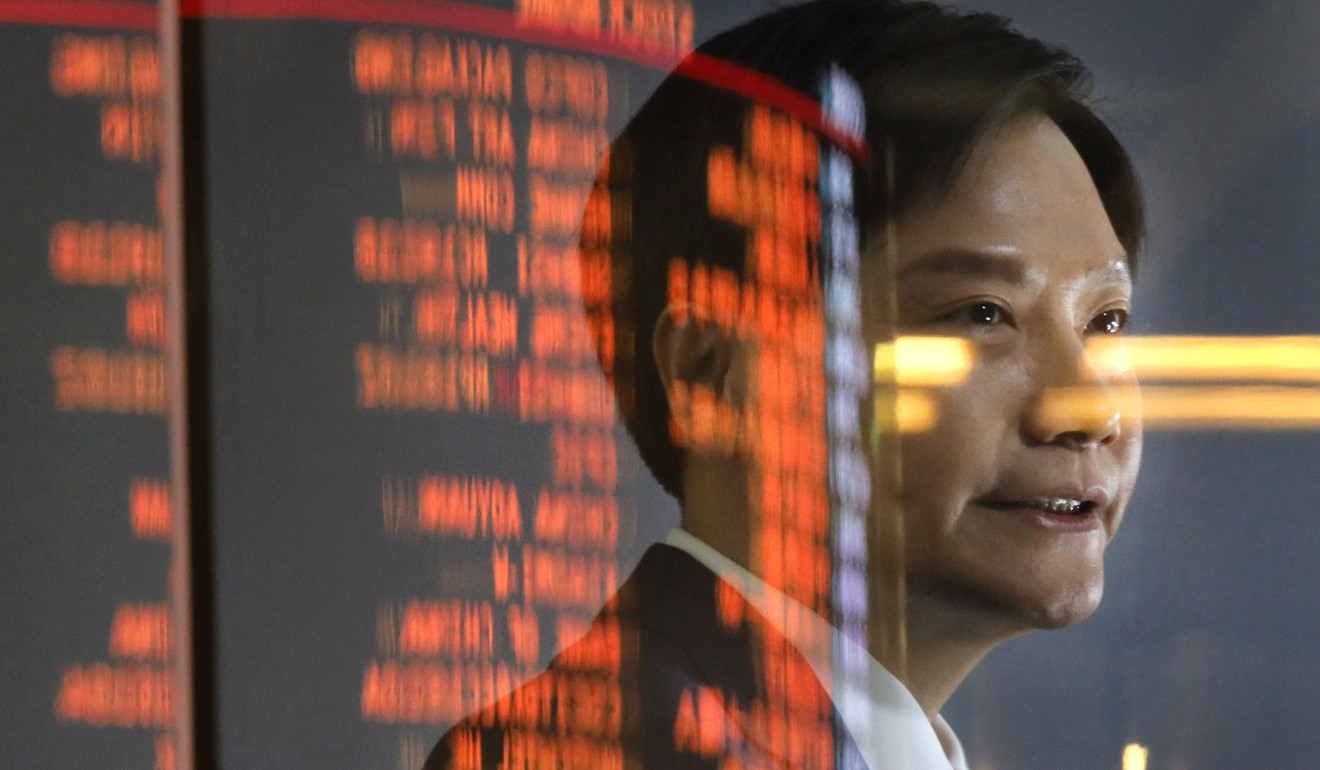
Hong Kong stocks close flat as Tencent falls and Xiaomi rises
Tech sector is mixed, as analysts say the sentiment is clouded by US-China trade war
Hong Kong stocks closed flat on Tuesday dragged down by a decline in Chinese internet giant Tencent Holdings, while smartphone maker Xiaomi drew enough fund inflows to stage a sharp rebound on its second day of trading.
The Hang Seng Index ended down 6.25 points, or less than 0.1 per cent, at 28,682.25. The Hang Seng China Enterprises Index rose 0.5 per cent, or 56.62 points, to 10,824.97.
Turnover for the main board remained flat at HK$98.7 billion.
Tencent and Xiaomi were the two most active stocks, with HK$10.4 billion and HK$9.8 billion of funds trading in them respectively.
Tencent closed down 2.3 per cent to HK$386.80, responsible for 69 points of losses on the Hang Seng Index. The decline came after Credit Suisse cut its target price for the stock by 5 per cent to HK$496, expecting the internet firm’s second-quarter profit growth to be slower than expected on decreased revenue from mobile games, compared with the first quarter.
Meanwhile, Xiaomi, which fell below its offer price of HK$17 on Monday, surged 13 per cent to end at HK$19, after FTSE Russell and the Hang Seng Indexes Company (HSIC) announced separately they will add the company to their widely-tracked indices, effective from July 16 and July 23 respectively.
Macquarie also issued a report setting a target price at HK$30, forecasting the smartphone maker to see higher profit margins for its internet services business in the next three years.

He said the inclusion of Xiaomi to the FTSE Russel index would trigger buying from exchange-traded funds when the change becomes effective, while Xiaomi joining the Hang Seng Composite Index could allow mainland investors to buy its shares through the stock connect schemes.
Still, the sentiment is fragile and could get worse if there is more news coming out from the US or China that could worsen their trade relations
Other tech stocks slipped. Sunny Optical Technology fell 2.1 per cent to HK$142 while AAC Technologies lost 1.1 per cent to HK$105.90.
Consumer shares also performed weakly, as Mengniu Dairy shed 3.9 per cent to HK$25.70 and WH Group fell 2.8 per cent to HK$6.22.
“The market has stopped falling, as the drop last week had basically reflected the bad news about US and China kicking off the trade war,” said Chan Ching-sum, a director for Eddid Securities and Futures.
“Still, the sentiment is fragile and could get worse if there is more news coming out from the US or China that could worsen their trade relations.”
On the mainland, the Shanghai Composite Index rose for a straight third day, up 0.4 per cent to 2,827.63. The large-cap CSI 300 Index ended up 0.2 per cent at 3,467.52. The Shenzhen Component Index rose 0.5 per cent to 9,205.43.
Airport operators and airline stocks rebounded following recent losses after the Chinese yuan strengthened. Shanghai International Airport surged 5.5 per cent to 60.18 yuan, China Eastern Airlines jumped 3 per cent to 6.52 yuan, and China Southern Airline advanced 2.6 per cent to 8.01 yuan.

